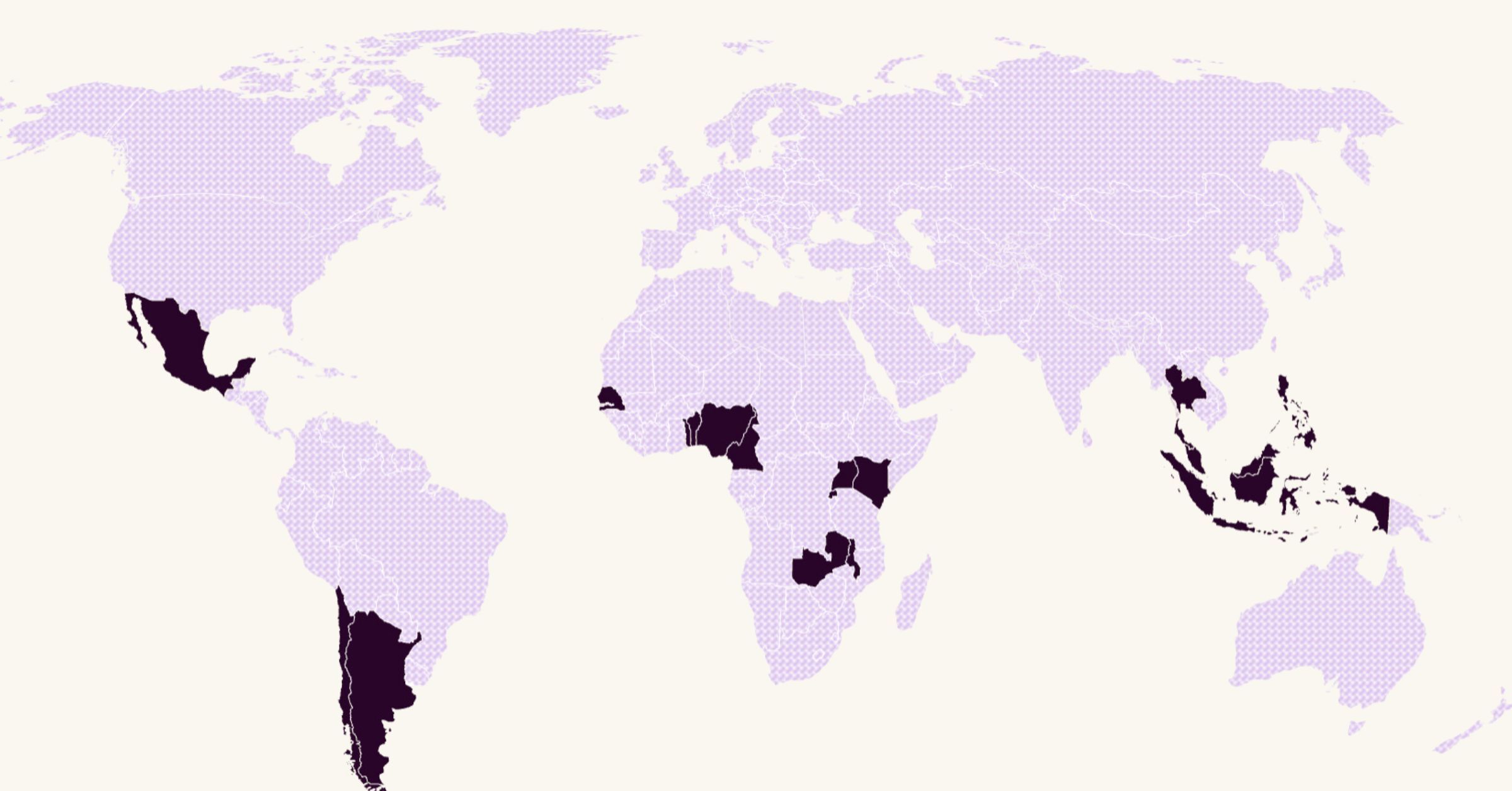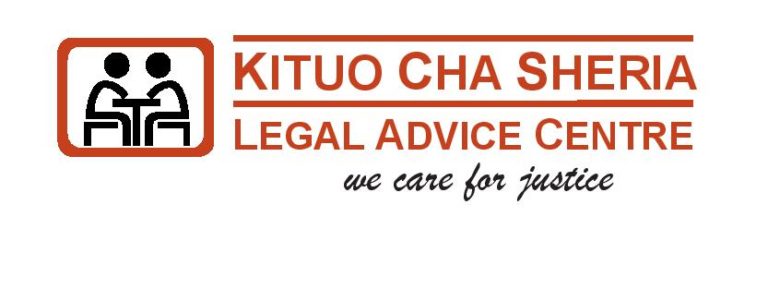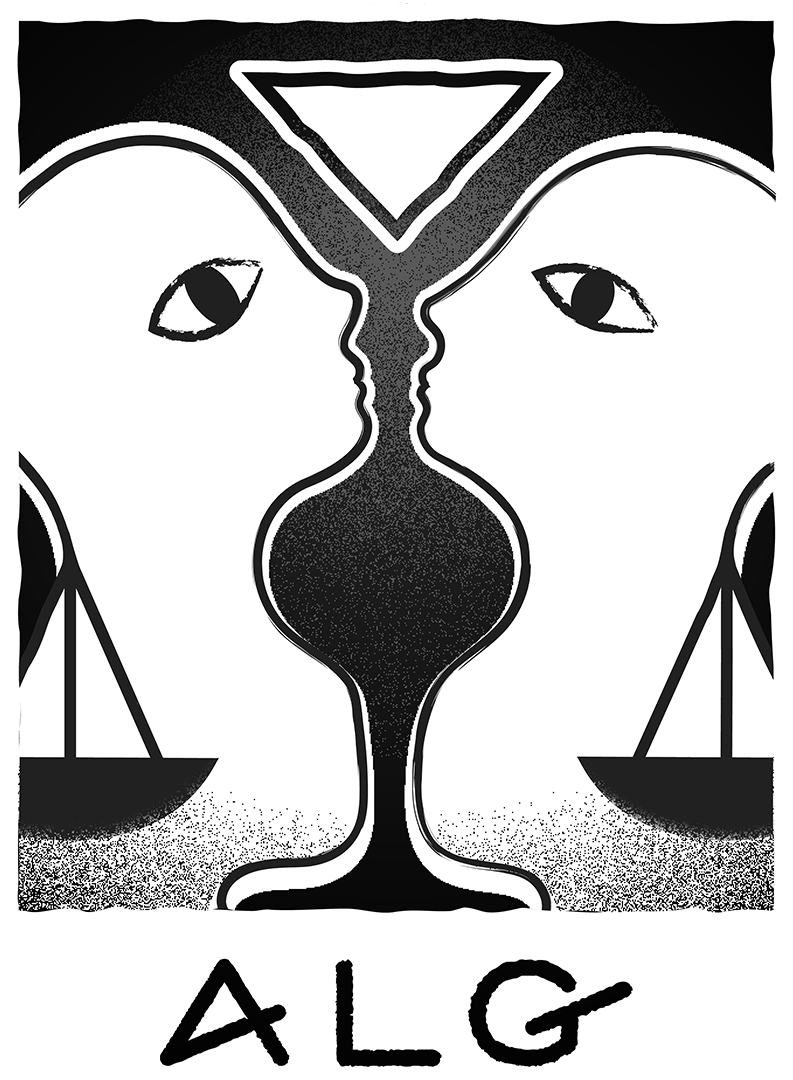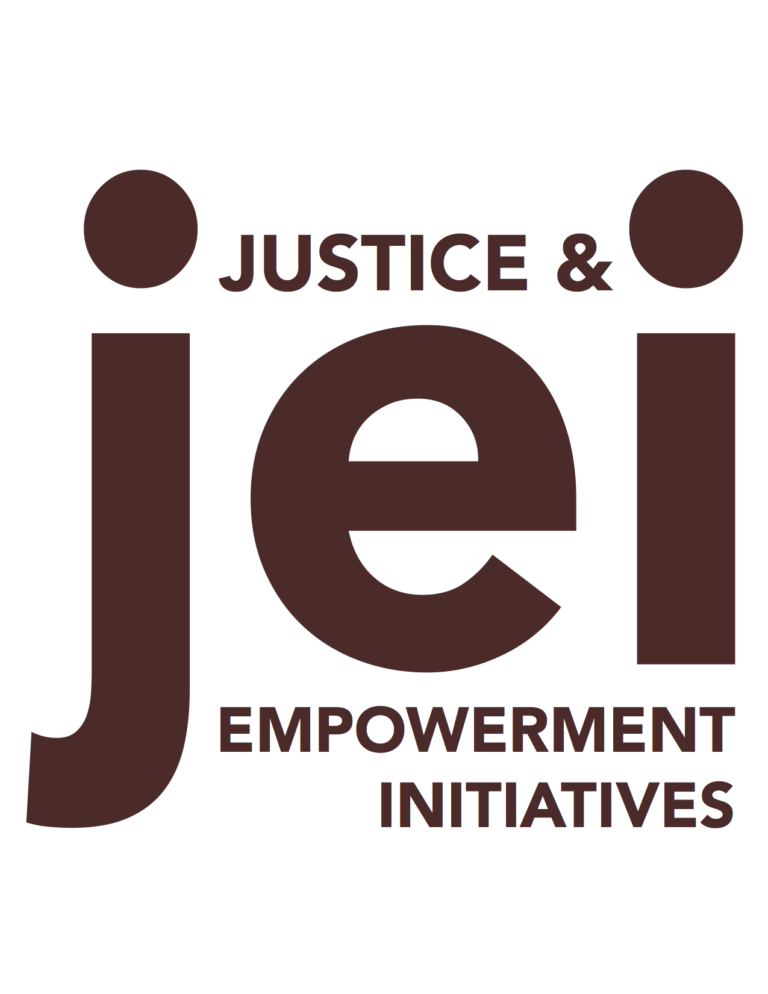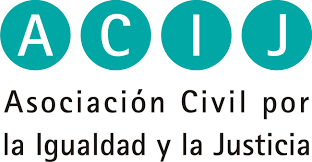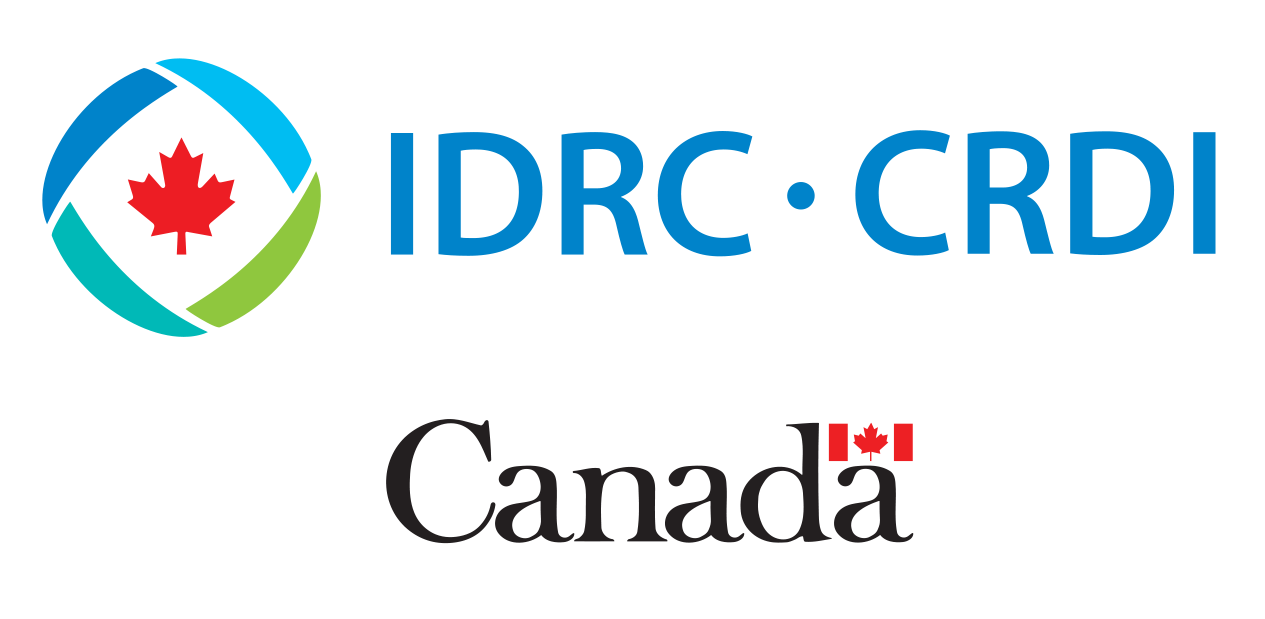13 Projects. 17 Countries.
Action research projects led by Network members across Latin America, Africa, and Southeast Asia are taking up key questions of the learning agenda. These projects are centering the leadership of communities and linking learning directly to struggles for justice. By combining research and program experimentation, the projects will generate powerful insights on how legal empowerment strategies can build community power, increase participation of marginalized groups in decision-making, and advance changes to laws and institutions that deepen democratic and inclusive governance.
For security reasons, two of the projects are not featured on this page.
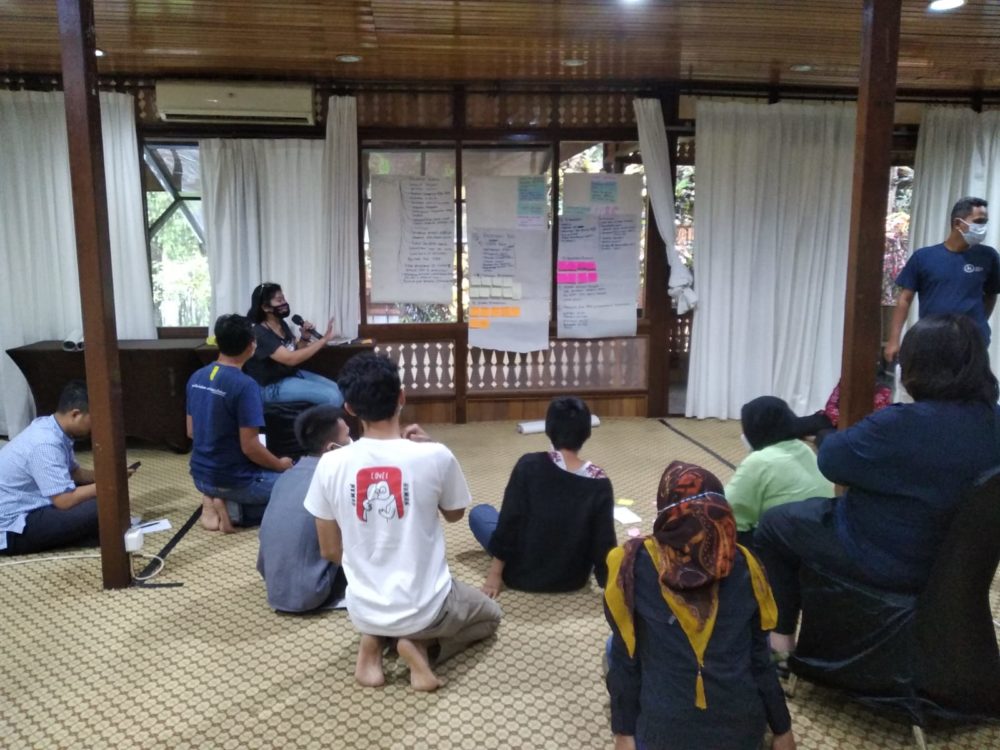
YLBHI workshop on action research for field researchers held in November 2021
Advancing Structural Legal Aid to Respond to New Challenges in Indonesia
Country: Indonesia
Organization: Indonesia Legal Aid Foundation (YLBHI)
YLBHI is critically examining their innovative ‘structural legal aid’ approach to adapt it to emerging challenges in Indonesia like populism, extremism, and the COVID-19 pandemic.
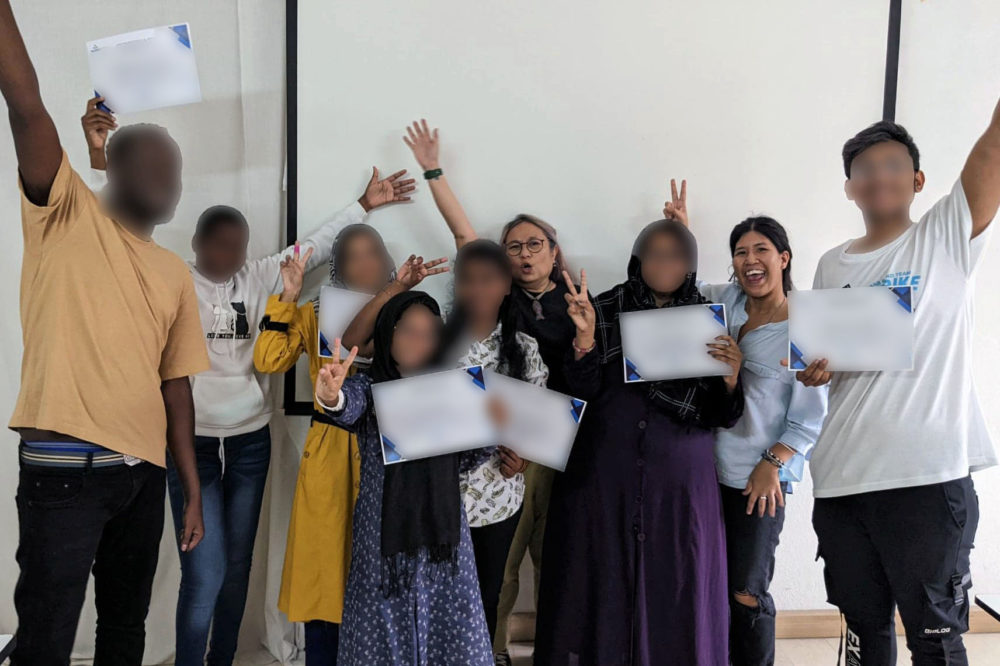
Graduation ceremony of Asylum Access’s yearlong Community Mentorship Program
Advancing Refugee Protection and Promoting Accountability in Southeast Asia through Legal Empowerment and Refugee Leadership
Country: Thailand
Organizations: Asylum Access Thailand, Chulalongkorn University, Refugees & Asylum seekers Information Centre
Asylum Access and its partners are experimenting with ways legal empowerment strategies that center the leadership of refugees can be used to implement new legal protections and drive systemic changes that advance refugee rights.
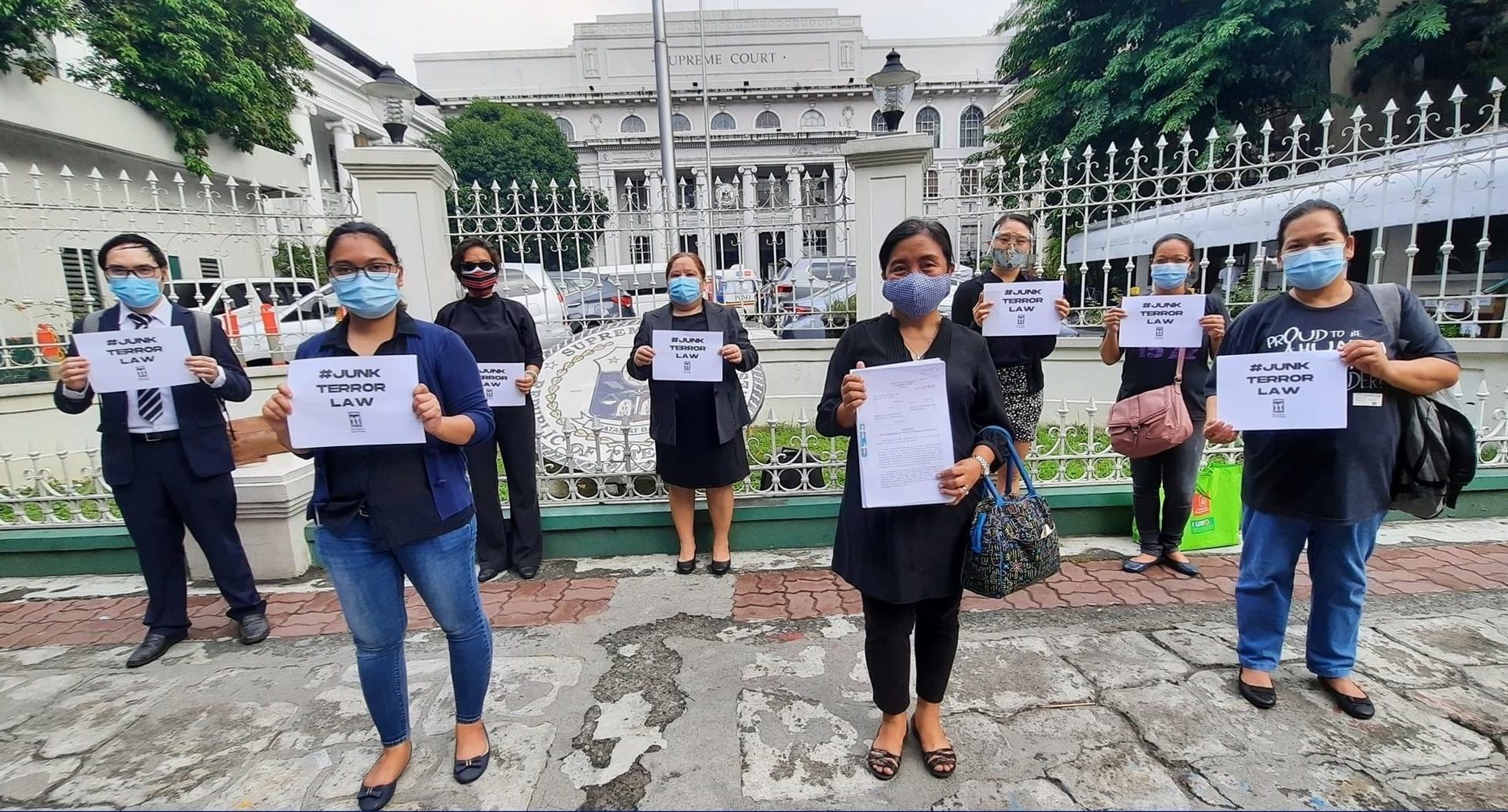
ALG advocates at the Supreme Court of the Philippines filing a petition to question the constitutionality of the anti-terrorism law
Empowering Grassroots Communities to Drive Collective Action to Bridge the Access to Justice Gap in Southeast Asia
Countries: Philippines, Thailand, Indonesia, Malaysia
Organizations: Alternative Law Groups (ALG), Community Resource Centre Foundation, Indonesia Judicial Research Society
ALG and its partners are studying how community paralegals, strategic litigation, and support to policy reform processes contribute to empowering poor and marginalized communities in Southeast Asia to claim their rights and take collective action to advance environmental and gender justice.

Hear Ruth Kaima from CHREAA explain the project and why she’s excited to participate in the Learning Agenda!
Using Legal Empowerment Approaches to Address Police Abuse in Malawi
Country: Malawi
Organizations: Southern Africa Litigation Centre (SALC); Centre for Human Rights Education, Advice and Assistance (CHREAA)
SALC and CHREAA are studying the police encounters of people from diverse socio-economic and ethnic backgrounds in order to understand the system that results in police abuse and the effectiveness of various legal empowerment approaches to stem this abuse.
Grassroots Legal Empowerment and Social Movements Partner to Close the Justice Gap for the Urban Poor in West Africa
Countries: Nigeria, Benin, Senegal
Organizations: Justice & Empowerment Initiatives (JEI), the Nigerian Slum/Informal Settlement Federation, the Physically Challenged Empowerment Initiative in Nigeria, and the Fédération D‘habitants des Zones de Taudis / Bidonvilles au Bénin
JEI and its partners are exploring how legal empowerment strategies and urban-poor social movements can most effectively work together to tackle the justice issues that contribute to the cycle of poverty in West Africa, such as forced evictions and criminalization of informal livelihoods.
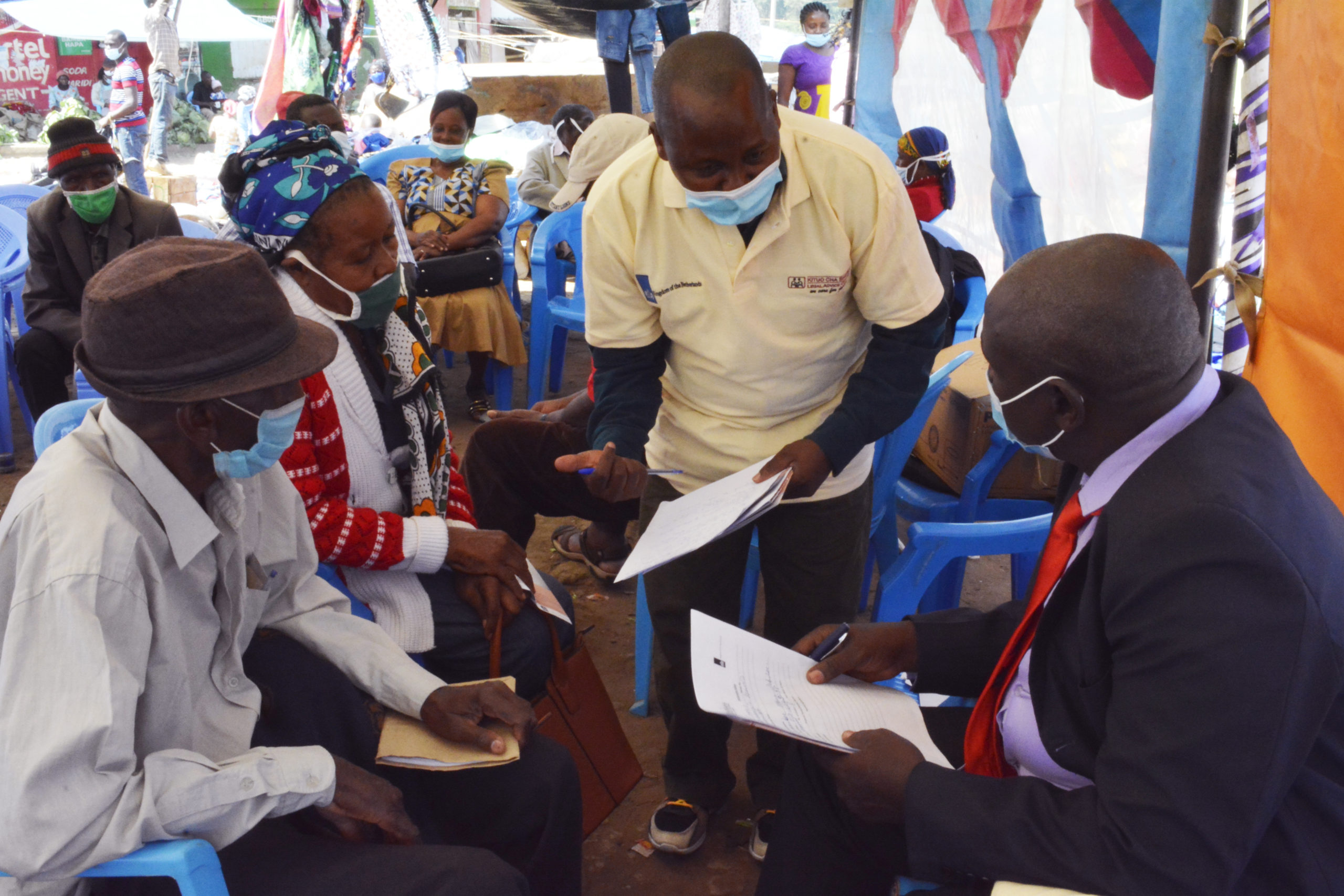
A Kituo paralegal working with community members at a legal aid clinic
Deepening the Impact of Legal Empowerment Programmes in Africa
Countries: Kenya, Rwanda, Uganda, Zambia
Organizations: Kituo Cha Sheria, Legal Aid Forum in Rwanda, Zambia’s Paralegal Alliance Network, and the African Centre of Excellence for Access to Justice
Kituo and its partners are assessing the efficacy of legal empowerment programs in Africa in overcoming exclusion, inequality, and injustice, with a focus on the paralegal approach and digital justice.

Hear from advocates and community members about the land violations in the Karamoja region of Uganda.
Preventative Action to Strengthen Community Rights in the Context of Land-Based Investments
Countries: Uganda, Cameroon
Organizations: Centre pour l’Environnement et le Développement, the Land and Equity Movement in Uganda (LEMU), and the International Institute for Environment and Development
This project is studying how preventative legal empowerment support and conflict resolution strategies can help rural communities ensure their land rights are respected, prevent negative impacts from land-based investments, and play a more proactive role in land governance.

Hear Patrick Njoroge from AMT explain the project and why he’s excited to participate in the Learning Agenda!
Uprooting Injustices and Establishing Formal Linkages for Inclusive, Integrated African Cities
Countries: Kenya, Zambia
Organizations: Akiba Mashinani Trust (AMT), Muungano wa Wanavijiji Alliance, Strathmore University, University of Nairobi, People’s Process on Housing and Poverty in Zambia
AMT and its partners are studying the root causes blocking access to inclusive basic services and infrastructure in informal settlements, as well as the particular challenges that hinder the participation of women and other vulnerable groups in decision-making.
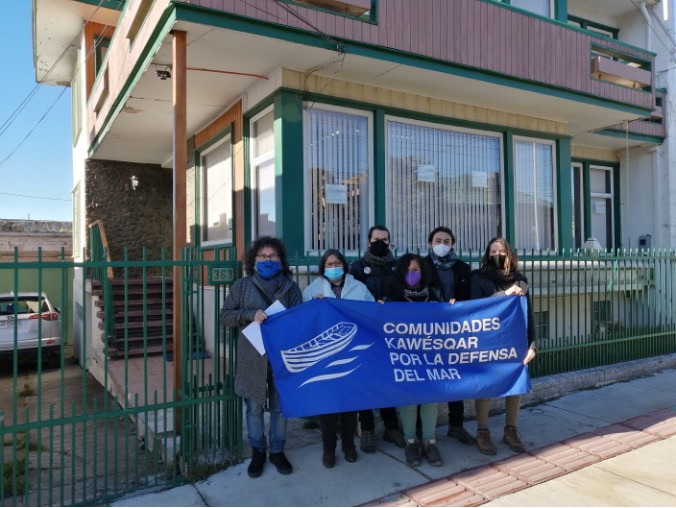
FIMA members and other activists after presenting an invalidation request before the Environmental Assessment Service against the widening of the sacred Kirke Canal
Collective Action for Protecting Community Lands in Chile from Exploitation by the Salmon Industry
Country: Chile
Organization: Fiscalía del Medio Ambiente (FIMA)
FIMA is exploring ways to create an alliance between communities affected by the exploitation of the salmon industry in Chile as they demand their rights to access information and participate in decision-making, and organize collectively against the exploitation of the salmon industry.
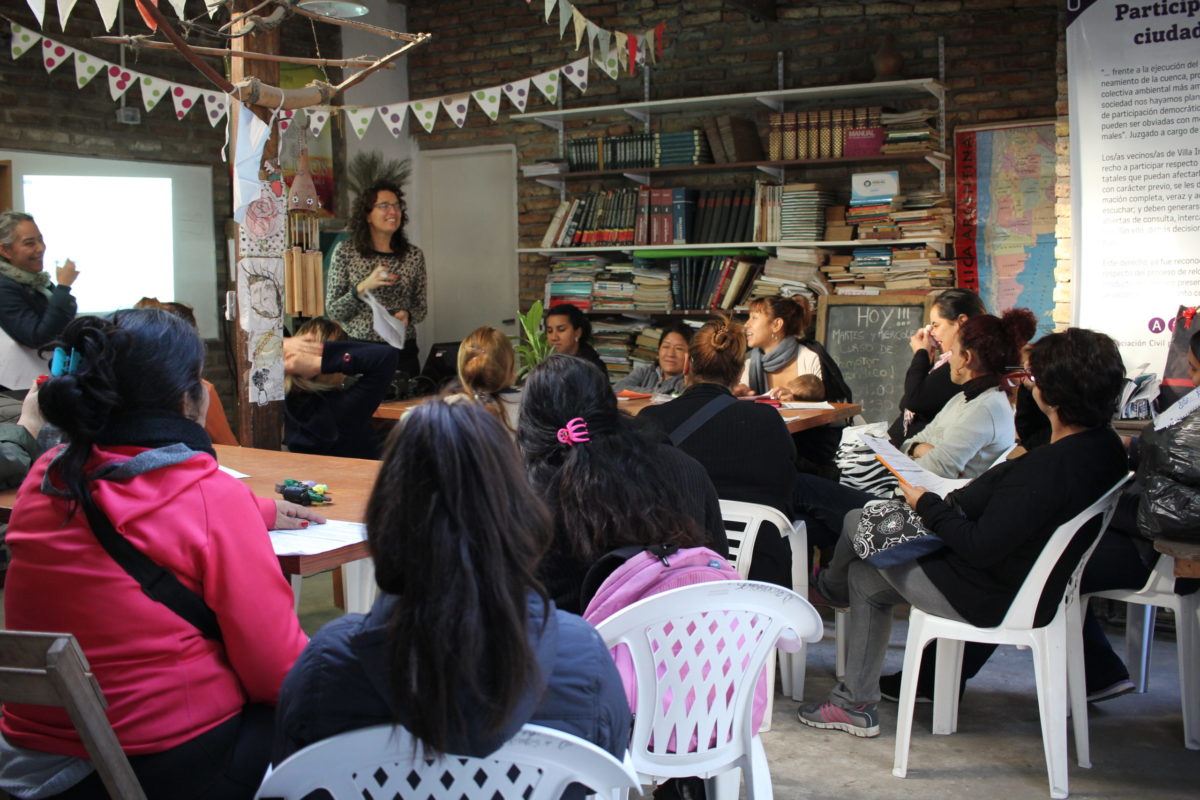
Course taught by ACIJ on legal empowerment for women leaders of the community of Villa Inflamable
Enhancing Public Participation and Community Solidarity for Urban Redevelopment in Argentina’s Matanza Riachuelo River Basin
Country: Argentina
Organization: Asociación Civil por la Igualdad y la Justicia (ACIJ)
ACIJ is working with residents of informal settlements to help them implement the commitments from positive court rulings and to empower them to realize their social, environmental, and economic rights and ask for greater participation in decision-making processes.

Community assembly held in Dziuché, Mexico in 2022
Preventative Strategies for Protecting Indigenous Land from Dispossession and Environmental Degradation in the Yucatán Peninsula
Country: Mexico
Organization: Proyecto de Derechos Económicos, Sociales y Culturales (ProDESC)
ProDESC is testing key strategies to improve their preventative approach to land protection and to suggest pathways that indigenous and agrarian communities can use to prevent dispossession of their land, ensure robust implementation of free, prior, and informed consent (FPIC), and promote development models that respect their ways of life and protect the environment.
Regional Hubs
The Grassroots Justice Network serves as the knowledge hub for this initiative. In collaboration with the regional hubs, Kituo Cha Sheria, Alternative Law Groups, Justice & Empowerment Initiatives, and Asociación Civil por la Igualdad y la Justicia, we coordinate shared learning efforts across the projects, facilitate peer exchange, and support the synthesis of emerging knowledge.

